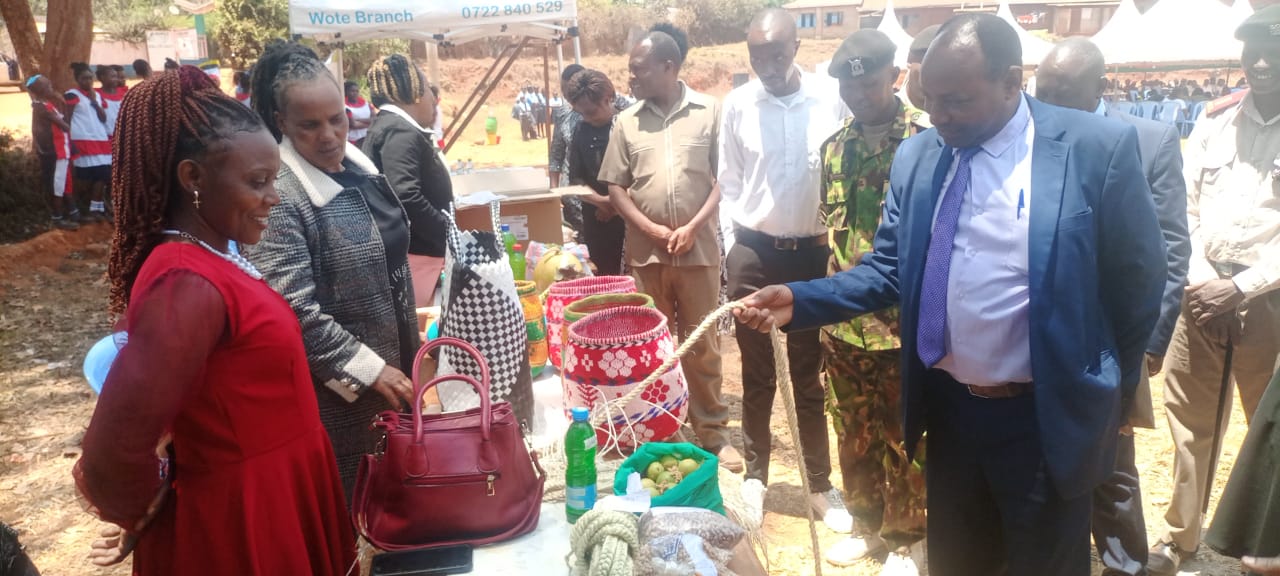 Paul Langat Deputy County Commissioner Makueni Subcounty (in a Coat) during exhibitions mounted during the International Literacy Day celebrations at Mukuyuni Secondary School on Monday. Photo Andrew Mbuva
Paul Langat Deputy County Commissioner Makueni Subcounty (in a Coat) during exhibitions mounted during the International Literacy Day celebrations at Mukuyuni Secondary School on Monday. Photo Andrew Mbuva
By Andrew Mbuva
The government must urgently employ more teachers and adequately equip adult learning resource centres in Makueni County if efforts to promote digital literacy are to succeed, Makueni Subcounty Deputy County Commissioner (DCC) Paul Langat has said.
Speaking during International Literacy Day celebrations at Mukuyuni Secondary School on Monday, Langat underscored the need to address teacher shortages and the lack of computers in the county’s 254 adult learning centres that serve over 4,800 learners.
“It is important for the government to employ more teachers to teach adult learners digital literacy and to alleviate the existing shortage. Also, the teachers should be well enumerated so that they can execute their duties effectively,” said Langat.
Currently, Makueni County has only 16 permanent teachers and 92 part-timers supporting the adult learning programme. Langat warned that the disparity between the high number of learners and the limited number of instructors was undermining efforts to equip adults with critical digital skills.
“How can you be taught digital literacy if you don’t have computers or enough teachers? I call upon all stakeholders, including NG-CDF and NGAAF, to supplement government efforts in equipping these centres with computers and other resources,” he added.
The DCC also urged local residents who missed out on formal education—particularly men—to join adult learning classes, noting that literacy was essential in improving livelihoods and accessing services such as the Inua Jamii cash transfer programme through mobile money platforms.
On her part, the Makueni County Director of Continuing Learning, Ms. Priscah Nduku Denis, revealed that of the 4,802 adult learners currently enrolled, 3,729 are women while 1,073 are men. She admitted that the shortage of teachers and lack of computers remain the greatest barriers to success.
“We are in discussions with the Ministry of Labour and Social Protection and the National Treasury to recruit more teachers in this financial year,” Ms. Denis disclosed.
The International Literacy Day event, themed “Promoting Literacy in the Digital Era,” also showcased livelihood projects such as kitchen gardening, knitting, and soap-making that have enabled adult learners to generate income and combat poverty.
Langat lauded the integration of literacy with skills training, noting that initiatives such as poultry farming, table banking, and dairy farming could further empower learners economically.